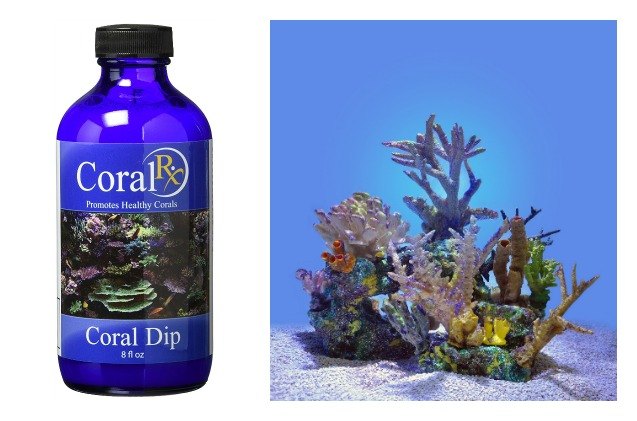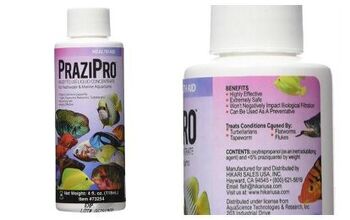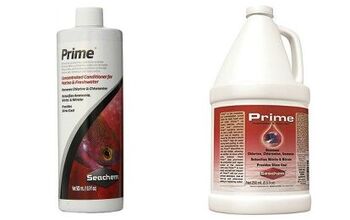Why You Need To Dip Your Coral in Coral RX

We briefly talked about why it is important to dip your corals prior to adding them to your tank in the article about common reef keeper mistakes. By being proactive, you can help eliminate any parasite problems that they may be carrying. Even if you think you got your coral from a clean place, and even if it is the most beautiful coral you’ve ever seen, it’s just not a chance that is worth taking in your tank. And the dip I recommend is Coral RX.
Coral RX makes being proactive just about as easy as it can possibly be. First of all, an 8oz bottle costs less than $20. It is widely available at large reef suppliers and online retailers.
Related: Growing and Propagating Your Own Coral
An 8oz Coral RX needs to be mixed with 12 gallons of treated water. Available in both larger and smaller quantities, as well as a concentrated version, you can get the size that best suits your tank and the corals you are purchasing.
How To Mix Coral RX
- You’ll need two bowls large enough for your new coral. In the first bowl, add 4 capfuls of Coral RX per gallon of water. There needs to be enough water to fully submerge the coral. In a second bowl, fill with clean, untreated salt water.
- Submerge your coral in the treated water, gently rolling it around in the solution for around five minutes. If the coral does have any parasites, such as flat worms or bristle worms, they will quickly come out and sink to the bottom of the bowl.
- After five minutes in the Coral RX treated water, rinse the coral in the untreated water by submerging it completely.
- Add the coral to your tank.
Don’t reuse a dip, because any parasites that have been removed from one batch of coral can potentially leave toxins in the used water.
Related: Daily and Weekly Coral Reef Tank Maintenance Schedule
Coral RX will successfully remove Acropora Eating Flatworms, Montipora Eating Nudibranchs, Bristleworms, Zoanthid Eating Spiders, and Red Flatworms. It can also aid in treating corals for hair algae, tissue necrosis, and bacterial infections.
One of the things I like about Coral RX is that it doesn’t contain iodine or any other chemical that could potentially harm the corals. Instead, the solution is made using all natural extracts and distilled water – that’s why it’s particularly gentle on the corals and causes no adverse effects. Similar products I’ve tried in the past can cause harm to the corals, and are just too harsh on the more sensitive species.
But be aware that Coral RX is for corals only, and should not be used on any other livestock in the aquarium.
Because Coral RX is relatively inexpensive, every reef keeper should have it on hand as a proactive part of their fish keeping. When it’s handy, you can quickly counter any surprise parasites or bacteria that may attack your existing corals, and you’ll always be ready to treat new corals.
Trust me – speaking from experience, being proactive in treating these potential problems can you a lot of heartache and time, not to mention it’s a smart idea to protect your aquarium investment. Spending $20 on a bottle of Coral RX now will save you hundreds of dollars in the future!
Summer Davis is the mom of three kids, four dogs, and several tanks of fish. She boasts a passion for all animals, whether they are in the water or on land. This fish aficionado has kept many different species in her time, but holds a special place in her heart for wild and domestic bettas. When she’s not talking about fish, Summer “spins” her extra time as the director of a baton twirling organization.

Summer Davis is the mom of three kids, four dogs, and several tanks of fish. She boasts a passion for all animals, whether they are in the water or on land. This fish aficionado has kept many different species in her time, but holds a special place in her heart for wild and domestic bettas. When she's not talking about fish, Summer "spins" her extra time as the director of a baton twirling organization."
More by Summer Davis
























